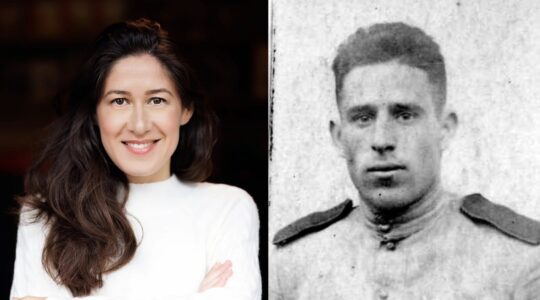Editor’s Note: This article was one of the finalists in our winter writing contest. More than 70 contestants from around the country and Israel answered the following question: “What Do You Want Jewish Community Leaders To Know About Teens Today?” The writer was granted anonymity due to the sensitive nature of the subject matter and to protect the family’s privacy.
She rolled around in her bed, muttering threats of self-harm under her breath. This was not the first time, nor would it be the last, that my mother spent consecutive days strung out on cocaine. She had torn my family apart, left my siblings lonely and desperate for affection and seemed to care for nothing but how and when she would get her next fix.
As a young boy, the concept of God was nothing short of baffling. Having attended a Jewish day school, I was injected with the notion that God was the omnipotent, omnipresent and ever-merciful master of the universe. I was told that God was everywhere.
But despite my tremendous efforts, I couldn’t find Him. Was He there when my mother missed my eighth birthday? Was He there when she stumbled around the house with a knife in her hand, warring with the voices inside of her head? Was He there on the nights I spent sitting atop the staircase above the garage, waiting for her to come home?
After years of struggle, I concluded that if there was a God, He was a cruel being. I felt as though He was making a game of my life, subjecting me to misery that was entirely undeserved. As my mother’s addiction worsened, I began to harbor feelings of hatred toward the God I was instructed to perpetually revere. Reverence was no more; resentment had taken its place.
After years of being told that indifference was my roadblock to a pious life, I feel that I must now reveal what’s actually held me back from religious advancement. I wanted so strongly to connect to a God that I couldn’t — no matter the immensity of my efforts — find.
Such an arduous endeavor exhausted me to the point of sheer bitterness. The reason I quit on religion as an early adolescent was because I couldn’t find the mercy in my heart to forgive a seemingly merciless God for the suffering He forced me through.
I am not apathetic. I am not indifferent. I am a person of passion and I’ve searched my entire life for a connection to a God who has time and again disappointed me. Where was He?
In my utopian Jewish community, communal leaders would understand that a tragic past can mold a resentful present. In acknowledging this, many would be more inclined to formulate ways to assist in weeding through the darkness to arrive at the light. It’s not that we, the sufferers, are vehemently opposed to a divine presence; it’s that we don’t know how to see past the pain to find the God we’ve been told is everywhere.
Knowing that religion can be used as a tool to heal and understanding that many adolescents are in dire need of healing could result in a groundbreaking remedy for suffering. I have since forgiven God, but on my own accord. Unfortunately, I still haven’t found Him. The search continues…
The New York Jewish Week brings you the stories behind the headlines, keeping you connected to Jewish life in New York. Help sustain the reporting you trust by donating today.




